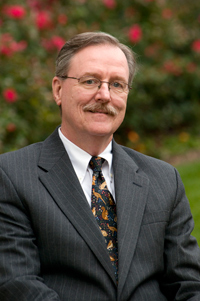


|
 |

|
Quotes for today: One never notices what has been done; one can only see what remains to be done. Madame Curie _______________________________________________________________ |
|---|---|
AARP on estate planning.....In a recent study the AARP reports that only 60% of Americans over the age of 50 have wills, 45% of those people have powers of attorney, 30% of these people have advanced medical directives, and only 23% have living trusts. These statistics indicate that most people fail to create a comprehensive estate plan. Many people think that having an estate plan is not necessary because they think either they are too young or they don't have enough assets. The following list from ElderLawAnswers.com illustrates estate planning is for everyone, regardless of age or net worth. You need an estate plan to plan for 1. Loss of capacity, 2. Minor children, 3. Dying without a will, 4. Blended families, 5. Children with special needs, 6. Keeping assets in the family, 7. Financial security, 8. Retirement accounts, 9. Business ownership, and 10. Avoiding probate. _____________________________________________________________ Congress and the unlimited deductions....Can you name the two unlimited estate tax deductions enacted by Congress? Answers are below. ____________________________________________________________ ______________________________________________________________ Is your prospect a Splitter? a Halfback? or a Snowbird.... The new Terms of Retirement have increased and include: a Splitter is one who divides time between two permanent homes, i.e. Maine and Florida; a Halfback who is one who has relocated for their retirement and because they are not comfortable with their situation have moved northward because they were not happy with the heat and humidity and are seeking an area where they can once again experience the change of seasons without the severe winters; and a Snowbird, a term that has been used for years, one who flees the winters in the North and may find relocating permanently or becoming a splitter makes sense for their retirement lifestyle. Capturing the interest of these retirement nomads in planned gift activities of your charity may prove to be very difficult without some significant interaction and cultivation activities with them. ________________________________________________________________ The wacky world of estate taxes.....An Illinois women recently inherited not quite $100 million. Estate taxes could consume 53%, 45%, 16% or none of it. This is not a quiz but the reality of the Federal and Illinois estate taxes, both of which lapsed on January 1, 2010. Lots of families face similar estate tax limbo. Make sure any plan you discuss with prospects includes the contingency for a year with no estate tax, as well as the minimal $1 million exemption next year (if Congress does not act sooner on new legislation). For 2010 deaths the law allows a $1.3 million step-up in basis for property left to anyone, plus an additional $3 million step-up for property left to a spouse. So this is the year where everyone needs to know their tax basis in assets so the executor can divide the property according to the best tax treatment. Reconsider the wisdom of gifting strategies to solve estate tax uncertainty. Anyone can gift to anyone else up to $13,000 a year in cash, or assets without having to worry about gift taxes. So you and a spouse can could transfer up to $26,000 a year to a child or grandchild. You can also pay anyone's education or medical bills without dipping into the $13,000 exclusion, if the payment is made directly to the school or medical provider. The wacky world of estate taxes #2.....Dan Duncan, a soft-spoken farm boy died in March of a brain hemorrhage at age 77 when he was the 74th richest person in the world. He beat the tax man. For the rest of the story read here. ________________________________________________________________ Talking to parents about estate planning...How to Approach Your Parents About Their Estate Planning Sometimes the best articles on a topic are developed by others. Below is an excellent article by Oast & Hook an attorney firm in Portsmouth, VA, you may wish to sign up for their informative newsletter. Oast & Hook often hears from children who are concerned that their parents may not have an estate plan in place. The children are worried that if something happens to one or both parents, the children will not be equipped to assist their parents, and many times the children have no idea where the parents stand financially. Understandably, these subjects may be hard for children to discuss with their parents. The children do not want to appear greedy, and the parents may fear loss of control or independence. Dysfunctional families face additional challenges when trying to assist senior family members. How can you approach your parents about these issues? First, you should get your own house in order; make sure that you have executed your own will, durable power of attorney, and advance medical directive. After you learn about these tools, then you should be able to approach your parents by referring to your work with an elder law attorney and what you found out. Then ask your parents if they have done the same planning. The goal is to balance safety with independence, and to not wait until an emergency strikes to start planning. Don’t first ask them if they have done a will; this approach can reinforce any impression of greediness on your part, and it can scare away those parents who don’t want to think about their own mortality. Focus instead on the durable power of attorney and advance medical directive; ask your parents who can make financial and medical decisions for them if they cannot make the decisions for themselves. You can give the example of a temporary disability that may require someone to help pay the bills or make medical decisions. If your parents already have a plan in place, then see if they will let you know where they keep their documents. If you can, ask to review their documents and get the name of their attorney. The attorney may not be able to talk with you at that point in time, but you will know where to turn in case of an emergency. If your parents do not have a plan in place, then you should suggest that they make an appointment with an elder law attorney. Your parents may let you schedule an appointment for them, but you need to be aware that the parents, not the children, will be the clients of the attorney. You will also want to know where your parents keep other important documents such as safe deposit box keys, birth certificates, passports, deeds, insurance policies, investment and bank statements, tax returns, Social Security numbers, and medical insurance cards and information. If your parents do not want to share this information with you, then ask them to prepare a list and let you know where the list can be found in case of an emergency. You should assess your parents’ current financial situation to see whether your parents have sufficient income and resources to meet their needs. If your parents will not discuss these issues with you, then you should ask a trusted friend of your parents to talk with them to encourage a family dialogue. To help overcome this generational communication gap, here are ten conversation-starting questions that adult children should ask their parents, as well as resources for dealing with these often difficult issues. 1. Do you feel comfortable about your financial situation? Would a financial planner be helpful? 2. Do you have an estate plan? 3. Who should handle your finances if you become ill? 4. In the event you become seriously ill, what level of care and intervention would you like? 5. Do you have enough health insurance? 6. Do you feel your physician is well-informed about issues common to older patients? 7. Can we make your home more comfortable? 8. Are you feeling secure about driving? 9. Can you share your thoughts about your funeral? 10. Can you compile a list of all your important information? ____________________________________________________________________ Recent speeches..... June was an active month for speeches with a presentation the the AHP Southeast region in Atlanta on Gift Plans Every Advisor can suggest to their clients and the the Partnership for Philanthropic Planning in Little Rock on a Case Study Approach to Integrating Charitable and Financial Lifecycle Fund Raising with Gift Annuities into your Annual, Major and Planned Gift program. Copies are included under Articles or just use the links above. ___________________________________________________________________ Advertising to seniors....George Duncan, an award-winning direct-mail expert who specializes in the senior market suggest promoting the offer and not the product. The offer consists of everything that impact the value or perceived value of the product and everything that comprises the process of getting it from your charity to the donor. Seniors prefer the certainty and familiarity of order and reply envelopes going into the US mail. They are less comfortable calling an 800 number, although many older folks are discovering the Internet in droves. Comment: for the marketing of gift annuities and bequests this mean more emphasis on the benefits and impact of your mission and less on the technical jargon that accompanies many of the advertisements I review as charities promote planned gifts. ____________________________________________________________________ |
|
Kudos Corner This is a new section where I will be highlighting some gift expectancies and gift program elements I think will be helpful and informative, not all gifts are included. Robert Sharpe in the April 2010 issue of Give and Take wrote "....in both good years and bad, many of the largest charitable gifts take the form of unexpected bequests...." this is certainly true for Lifepath Hospice, Tampa, FL. Kudos to Sharon Jones FAHP, VP Development and her team at LifePath Hospice, Tampa, FL for their recent $1.1+ million unrestricted bequest. The donor Mrs. P made her original will in 2003 with three codicil revisions until her death in 2010. An apartment dweller from Sun City Center, Florida and a depression era couple she and her husband lived a modest life well below their financial means. Her husband, who died in 2007 received hospice care in his final days. Her original will left everything to her daughter and a 75% contingent residuary bequest to LifePath Hospice and the balance (25%) to a military charity. Her daughter predeceased here in 2010 and her last codicil was dated March 2010. Her total outright gifts to Hospice were a modest memorial in 2003 and a $1,000 in 2007. She did not show up on any of the wealth screening tools. _______________________________________________________________ Answers: Congress enacted both the unlimited marital deduction(Code Section 2056) and the unlimited charitable deduction(Code Section 2055). The combination of the marital and charitable deductions can result in a totally estate tax free estate. |
|
James E. Connell and Associates is a national consulting service devoted to increasing resources for charities using the power of charitable estate and gift planning techniques. Pinehurst
office: PO Box 3335, 15 Pinewild Drive, Pinehurst, NC 28374 |
|
| To unsubscribe from this newsletter click this link and in the title line put unsubscribe | |